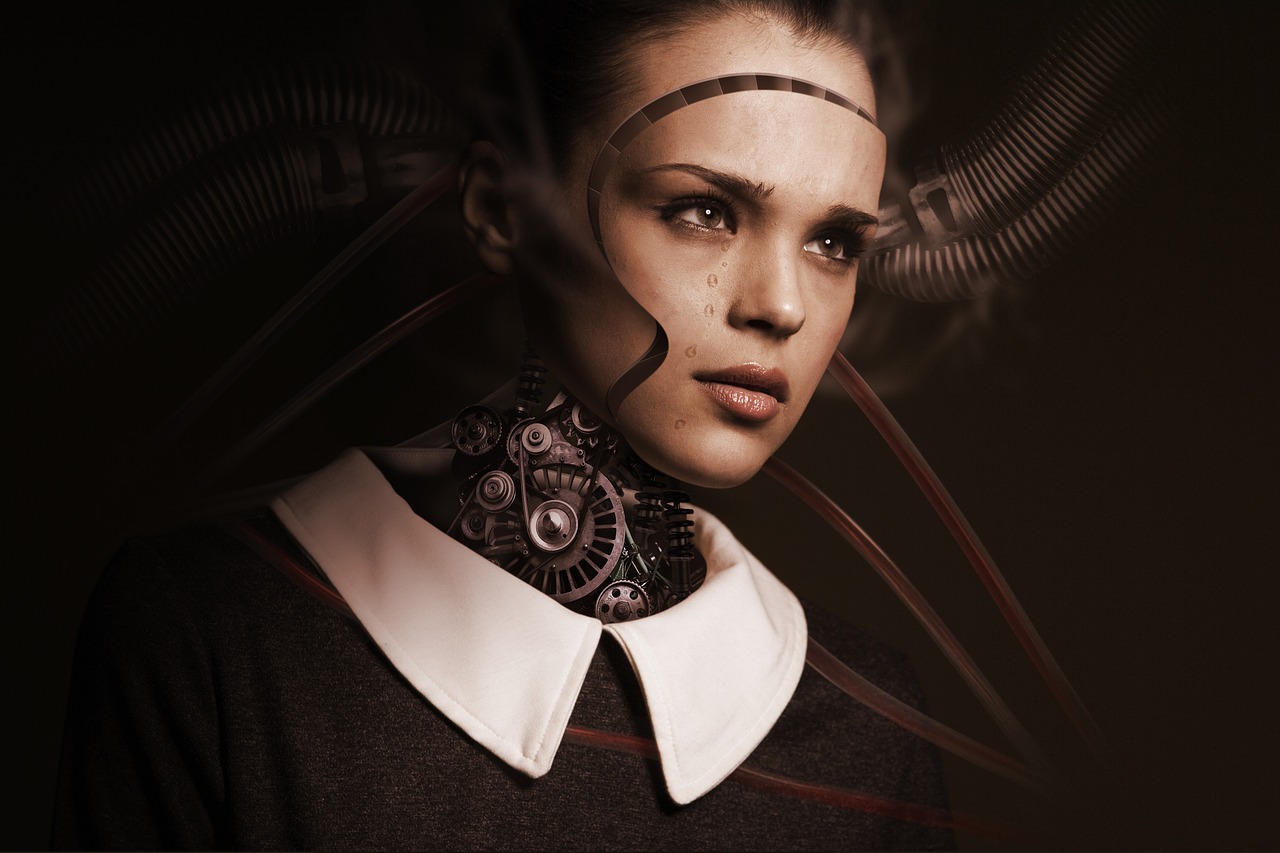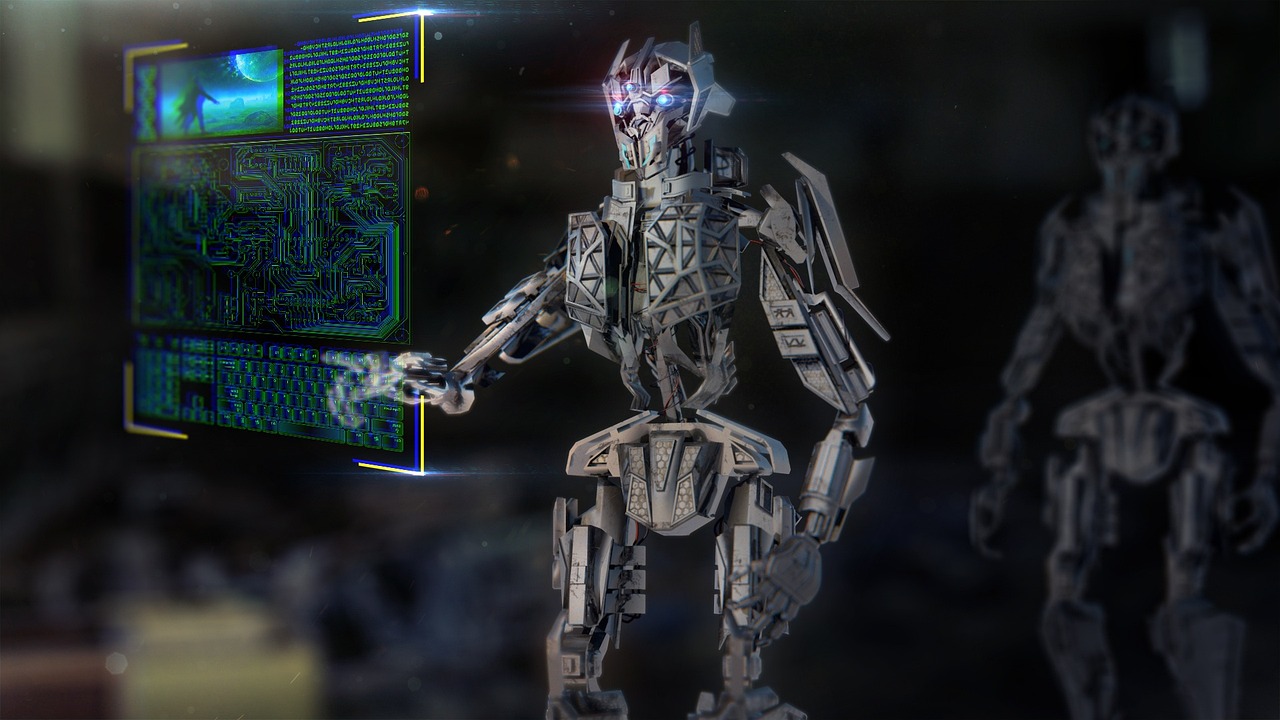Artificial intelligence (AI) is no longer just a futuristic concept—it’s already here, changing the way we work, communicate, and even make decisions. From voice assistants like Siri and Alexa to self-driving cars and AI-generated art, the rapid advancements in AI are shaping nearly every aspect of our lives. But what’s next? Where is AI heading, and how will it continue to evolve in the coming years?
Let’s take a deep dive into the future of AI and explore the trends, breakthroughs, and challenges that lie ahead.
1. AI Will Become More Human-Like

One of the most exciting developments in AI is its ability to mimic human behavior more accurately. Natural language processing (NLP) and machine learning are advancing at an incredible pace, making AI-powered chatbots and virtual assistants more conversational, intelligent, and even emotionally aware.
In the future, AI won’t just understand words—it will grasp context, tone, and emotions. Imagine an AI therapist that can detect stress in your voice and provide calming responses or a personal assistant that can anticipate your needs based on past interactions. This level of human-like intelligence is closer than ever.
2. AI in Healthcare: Saving Lives with Precision Medicine
AI is already making waves in the medical field, but the future holds even greater potential. With the ability to analyze massive amounts of patient data, AI can help doctors diagnose diseases faster and more accurately.
One of the biggest breakthroughs will be personalized medicine—treatments tailored to an individual’s genetic makeup and medical history. Instead of a one-size-fits-all approach, AI will help doctors predict which treatments will work best for each patient, leading to better outcomes and fewer side effects.
Additionally, AI-powered robots may assist in surgeries, reducing human error and improving precision. Imagine a world where AI can detect cancer in its earliest stages or predict potential health risks before they become serious. This is the kind of future AI is helping to create.
3. The Rise of Autonomous AI and Robotics
Self-driving cars are just the beginning. In the coming years, AI-powered robots and autonomous systems will become more common across industries.
- Delivery Drones and Robots – Companies like Amazon and Tesla are investing heavily in autonomous delivery robots and drones. Soon, AI-powered robots could deliver your groceries or packages right to your doorstep.
- AI in Manufacturing – Factories are becoming increasingly automated with AI-driven robotics that can work faster and more efficiently than humans.
- Household Robots – Personal AI assistants won’t just be in your phone or smart speaker—they may soon be in your home, helping with cleaning, cooking, and even providing companionship.
As robots become more advanced, they will take on tasks that were once considered exclusively human.
4. AI’s Role in Creativity: The Age of AI-Generated Art and Music
Can AI be creative? Absolutely. AI-generated art, music, and even literature are already gaining popularity. Tools like OpenAI’s DALL·E and Google’s DeepDream can create stunning artwork, while AI-generated music is being used in films and video games.
In the future, AI could assist musicians, writers, and filmmakers by generating ideas, composing music, or even writing full-length novels. The key question remains: Will AI ever truly replace human creativity, or will it remain a tool for enhancing human expression? Only time will tell.
5. The Ethics of AI: Balancing Innovation with Responsibility

With great power comes great responsibility. As AI becomes more advanced, ethical concerns grow. Issues like bias in AI algorithms, job displacement due to automation, and the potential misuse of AI in surveillance or warfare need to be addressed.
Governments and tech companies are already working on regulations to ensure AI is used ethically. However, as AI becomes more autonomous, we need to ask:
- Who is responsible when an AI system makes a mistake?
- How can we prevent AI from reinforcing societal biases?
- What safeguards should be in place to protect privacy and security?
The challenge will be creating AI systems that are fair, transparent, and accountable.
6. AI in Everyday Life: Making the World Smarter
AI is already integrated into our daily routines, but its presence will become even more seamless in the future.
- Smart Cities – AI will optimize traffic flow, reduce energy consumption, and improve public transportation, making cities more efficient and sustainable.
- AI-Powered Education – Personalized learning experiences will become the norm, with AI tutors helping students learn at their own pace.
- Better Customer Service – AI chatbots and virtual assistants will provide instant, intelligent customer support, reducing wait times and improving user experience.
We are heading toward a future where AI will enhance every aspect of our lives without us even noticing.
The Road Ahead: What’s Next for AI?
As AI continues to evolve, it will redefine industries, challenge our understanding of creativity, and raise ethical concerns. The key to harnessing AI’s potential lies in responsible innovation—developing AI that benefits humanity while minimizing risks.
So, what does the future of AI look like? In many ways, it depends on how we choose to shape it. Will AI become a helpful assistant, a creative partner, or even a decision-maker? One thing is certain: Artificial intelligence is here to stay, and its potential is limitless.

